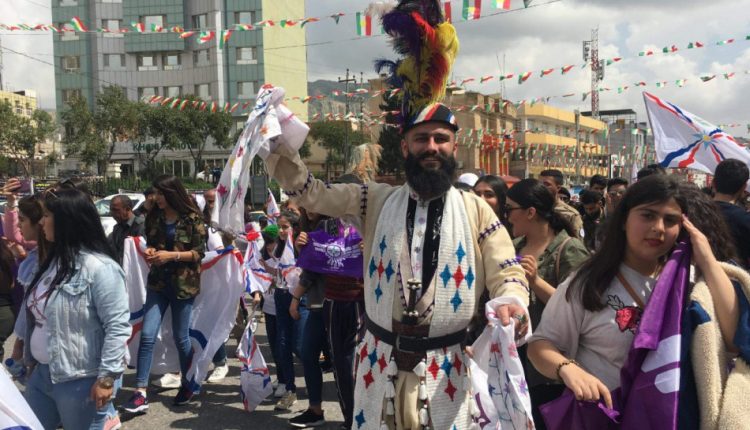Syrian National Attacks Akitu Festival Participants in Iraqi Kurdistan, Injuring Two
By Kardo Roj
DUHOK, Iraq (North Press) – A Syrian national attacked participants in the Akitu festival, an ancient Assyrian-Babylonian New Year celebration, in the Kurdistan Region of Iraq on Tuesday, injuring two people, including a woman who remains in critical condition.
According to Ninos Odisho, a leader of the Assyrian Democratic Movement and head of its Duhok branch, the attacker had been residing in Iraqi Kurdistan for some time. Local media reports indicate that the suspect shouted “Allahu Akbar” before launching the assault with an axe.
Authorities swiftly arrested the attacker, and an investigation is underway to determine the motive behind the attack. Officials have not yet disclosed whether the act was ideologically driven or an isolated incident.
Dr. Farman Ali, head of the emergency department at Azadi Hospital in Duhok, confirmed to Rudaw TV that the hospital admitted two victims, a 65-year-old woman and a young man, both suffering from severe injuries. The woman sustained a traumatic head injury and is under intensive medical supervision due to brain hemorrhaging caused by the axe strike.
Local security forces responded promptly, detaining the attacker on-site. A security official told Rudaw that authorities are examining the background of the suspect and any possible affiliations that might have motivated the attack.
This incident has raised concerns within the Assyrian community, which has historically faced violence and persecution in Iraq. The Akitu festival, marking the start of the Assyrian calendar year 6775, is a significant cultural event for Assyrians, celebrated across Iraq, Syria, and other diaspora communities.
The Kurdistan Region of Iraq, known for its relative stability compared to other parts of Iraq, hosts diverse ethnic and religious communities, including Assyrians, Kurds, and Yazidis. However, sporadic incidents of violence, often tied to sectarian or extremist elements, continue to pose a challenge to regional security.
The attack also comes at a time of broader tensions in the region, with security concerns heightened due to various geopolitical developments, including recent Turkish military operations in northern Iraq and Syria, as well as shifting alliances following the fall of the Syrian government led by Bashar al-Assad.
Authorities in Iraqi Kurdistan are expected to increase security measures around cultural and religious events to prevent further attacks. The response to this incident will likely influence intercommunal relations and security protocols in the region.
Assyrian leaders have called for enhanced protection of their communities, particularly during significant cultural and religious observances. Meanwhile, the investigation into the attack’s motives will determine whether additional measures are necessary to curb extremist threats.
As the region navigates ongoing security challenges, this incident underscores the need for continued vigilance in protecting minority communities and preserving the cultural heritage of Iraq’s diverse population.

